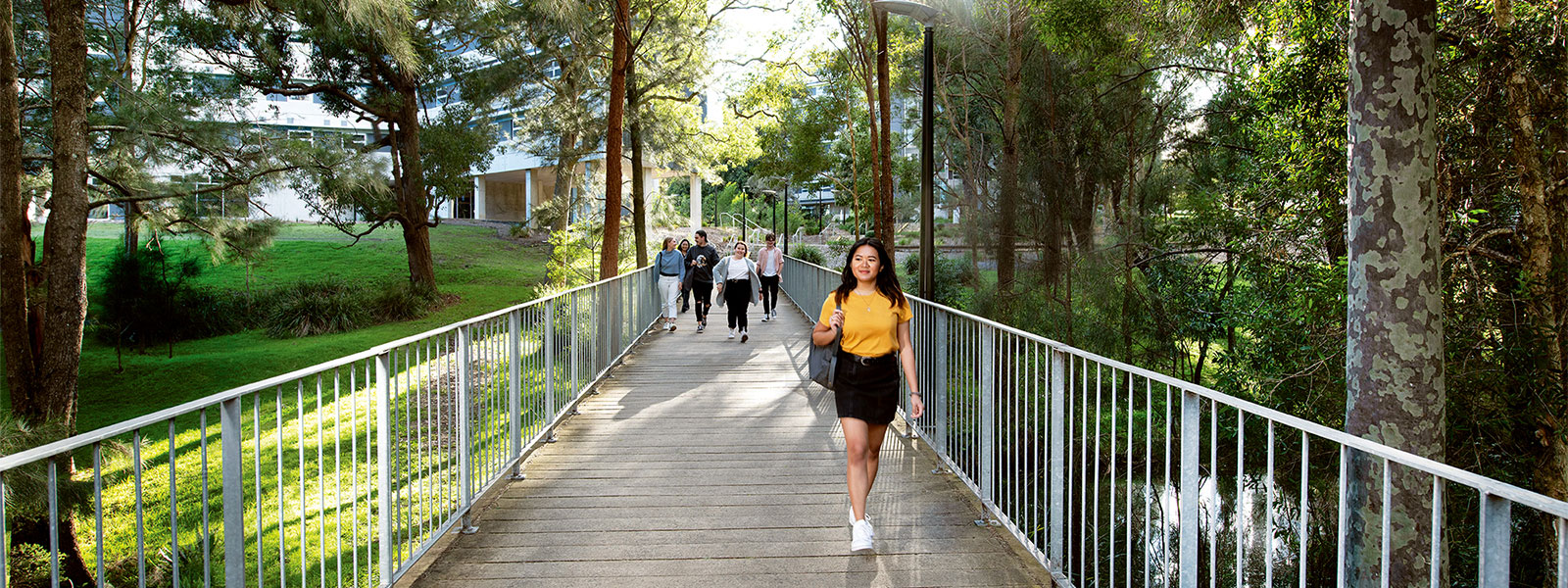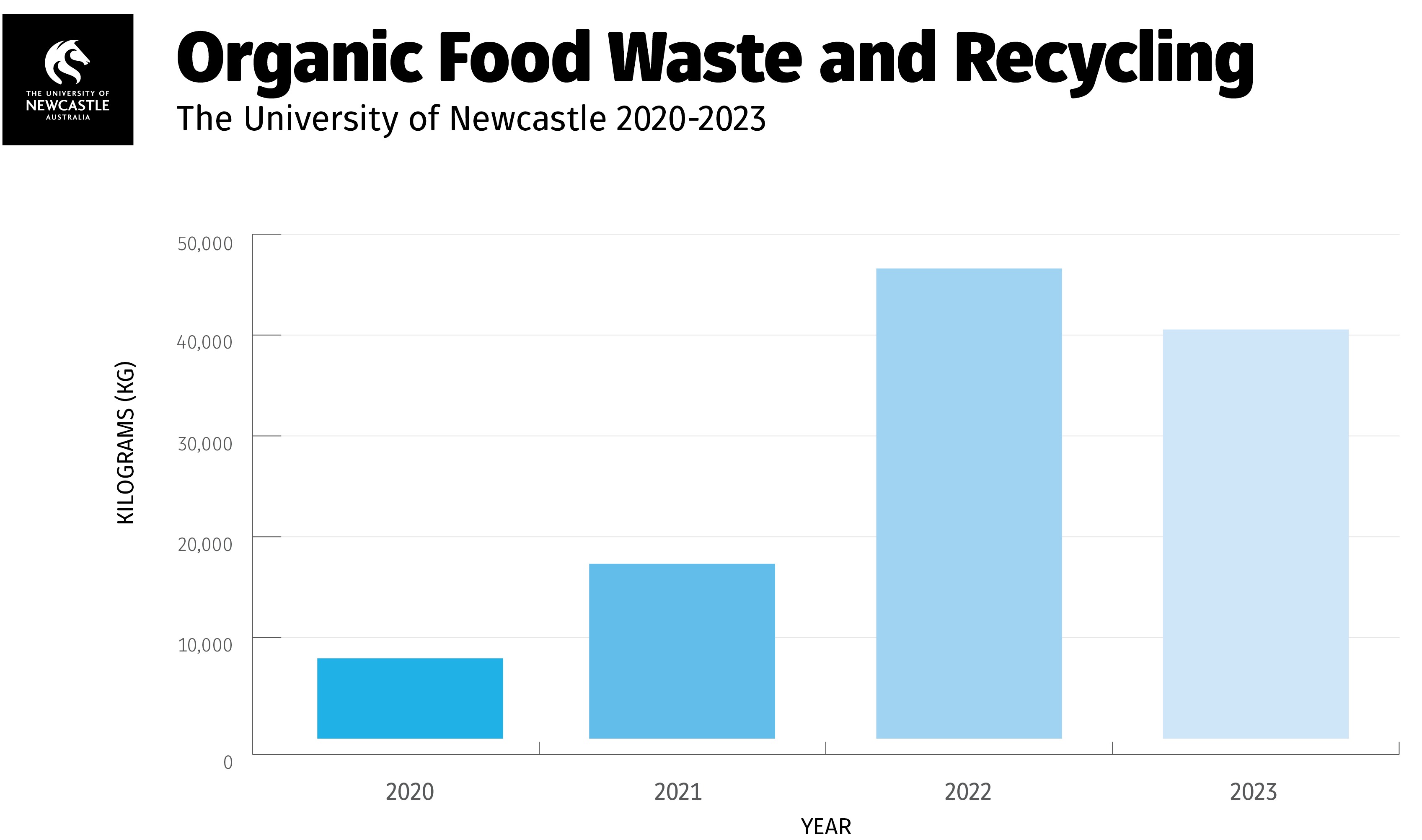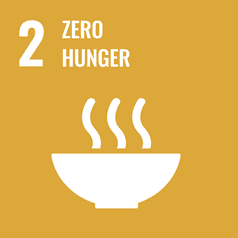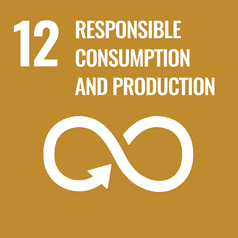
Composting on campus
Trials of food and organic waste collection and composting commenced at the University of Newcastle commenced in late 2019. In 2020, 7.947 metric tonnes of food waste were collected increasing to 17.32 metric tonnes in 2021. In 2022 a total of 46.6 metric tonnes of food waste was diverted from all Campuses which has levelled out to 40.54 tonnes in 2023. Refer to graph below:

A food and organic waste recycling service diverts food scraps from our resident’s dining hall and other food and beverage outlets, including meat and bones, coffee grounds, tea bags and any other Australian certified compostable product, into organic collection bins. The waste is then treated in a specialised industrial food waste disposal facility (EarthPower Technologies). This facility turns food waste and compostable packaging into fertilizer and green electricity through a process called anaerobic digestion.
Food and organic waste collection compost bins have been placed in locations across Campuses.
Organic Food collection bins have been placed in dining locations across campuses. Visit the interactive campus maps for locations.
Did you know
- Roughly one third of food produced ends up being wasted. When food rots in landfill it produces methane, which is 25 times more potent than the CO2 produced by cars. In addition to reducing greenhouse gas emissions, compost adds valuable organic matter back into our soils, while reducing the amount of waste going into landfill.
- The average cafe uses 60kg of spent coffee grounds a week, while 90% of cafes across Australia send their coffee grounds to landfill.
- The University has teamed up with an Australian first food waste energy company called EarthPower Technologies. Using anaerobic digestion technology, they convert solid and liquid food waste into a combustible gas similar to natural gas. There is an additional benefit in that the by-product of the process being a nutrient rich fertiliser.
- The compost bins can also recycle compostable packaging and utensils as registered under the Australian Standard for Compostability (Australia: AS4736). This could include items made from sugarcane, bamboo, paper or wood.
The University of Newcastle acknowledges the traditional custodians of the lands within our footprint areas: Awabakal, Darkinjung, Biripai, Worimi, Wonnarua, and Eora Nations. We also pay respect to the wisdom of our Elders past and present.

